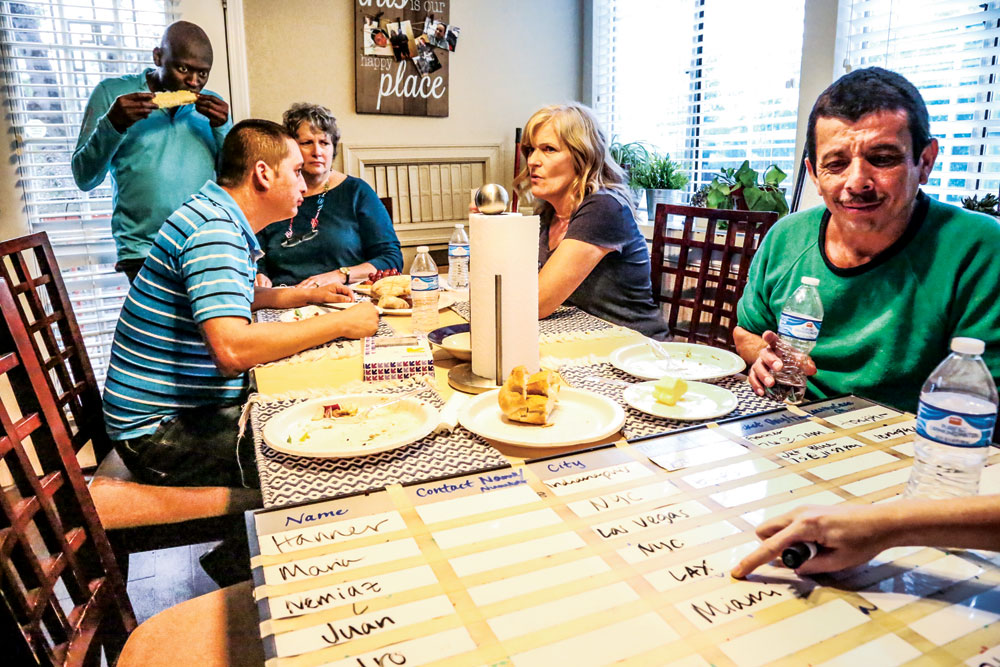
Casa de Paz volunteers ferry people released from GEO to the Casa, where they make travel arrangements to reunite with family while awaiting court dates. The white board fills with destinations and departure times as plane reservations get finalized. Volunteers Nancy Johnson, Jen Schwem and Oliver, the home host, talk with released detainees as they enjoy a home-cooked meal. Within a few hours of their release, most of the former detainees are on their way to family around the U.S.
For more, click here for the Front Porch story Immigration Reform: A National Problem in Our Backyard.
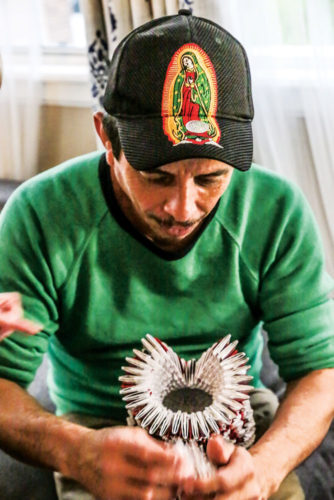
Pedro Hernández, a Honduran asylum-seeker, adjusts a vase he crafted from candy wrappers while in detention. Some community members are providing humanitarian aid to detainees like Hernández, while others protest detention policies—and our local lawmakers are working toward a national policy.
Every weeknight, volunteers gather to ferry people released from Aurora’s GEO detention facility to the Casa de Paz (“House of Peace”), an all-volunteer nonprofit that since 2012 has served 2306 people from 30 countries. Volunteers help them with travel plans to reunite with family in the U.S.
Nancy and Chris Johnson have been volunteering since 2015, when founder Sarah Jackson ran it out of her one-bedroom apartment off of Peoria Street, close to their Stapleton home. They felt compelled to act after learning about the South Texas Family Residential Center in Dilley, TX, where their son volunteered as an interpreter for the ACLU. He was appalled by the conditions. “Our son called and said ‘I am so angry at the president I worked so hard to get elected.’” It was 2015. The Obama administration.
The current administration’s more bellicose rhetoric and aggressive policies have raised awareness, as more people are being detained in the nation’s for-profit detention centers. “I am grateful for this president [Trump], who ripped the Band-Aid off. We can’t unknow what we know,” says Nancy.
For Park Hill’s Jen Schwem, it was this administration’s more strident rhetoric and draconian approach to immigration that moved her to volunteer. “I was feeling helpless for a really long time,” she says. When she learned about busloads of people coming to Denver from other detention centers, she reached out to Jackson, who suggested that she might visit someone in detention, reducing their sense of isolation. The young man she was paired with had fled gang violence in El Salvador, fearing for his life. Proving that “credible fear” is extremely difficult, however, especially without forensic medical and legal documentation. [Click for May Front Porch story on GEO.]
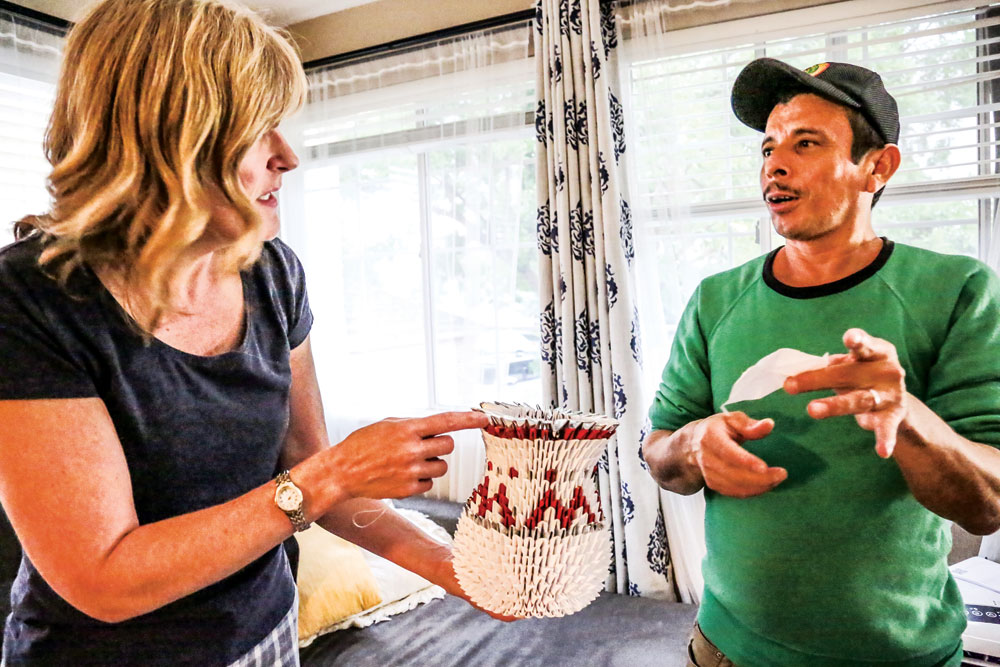
Pedro Hernández of Honduras shows a vase he crafted while in detention using small food wrappings. Below: Volunteer Chris Johnson gives Hernández a new backpack with overnight toiletries for the journey.
Most asylum cases take over a year to process, and the majority are denied. Denial rates have risen steadily since 2012, according to Syracuse University’s Transactional Records Access Clearinghouse (TRAC), a nonpartisan, nonprofit data research center. In 2018, 65% of asylum seekers lost their cases compared to 42% in 2012. Schwem attended her friend’s hearing, where his petition for asylum was denied. He was deported two weeks ago.
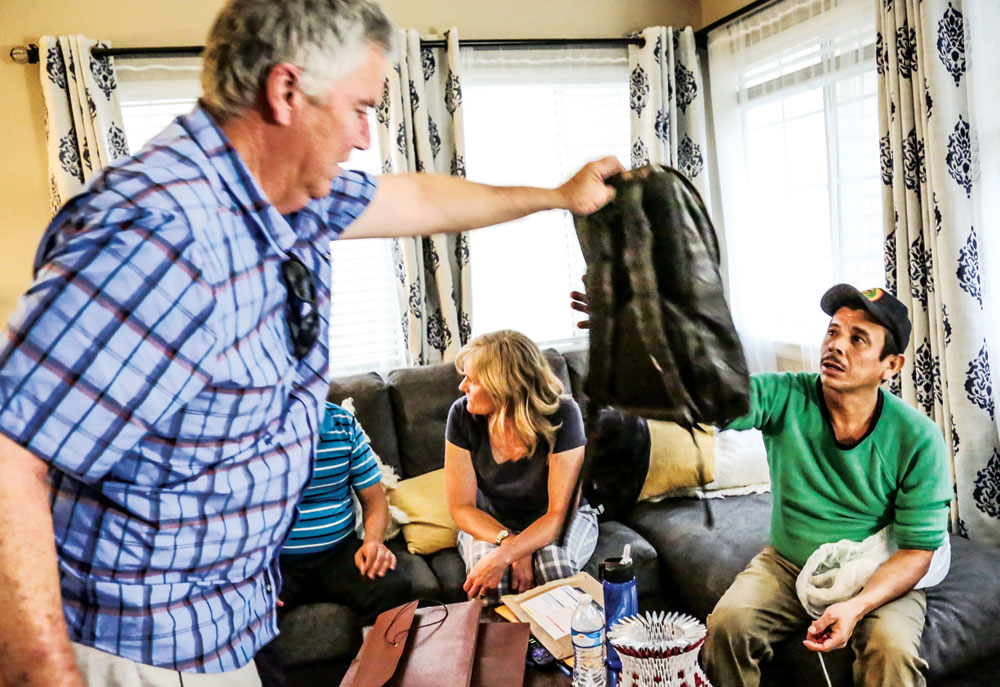
Volunteer Chris Johnson gives Hernández a new backpack with overnight toiletries for the journey.
The Casa volunteers concur that the profit motive drives current policies, which benefit private companies like GEO, who hold lucrative government contracts. “We are spending $150 a day to hold adults at these detention centers and $750 a day to cage children. What is the motivation to release them or spend money on their care?” asks Nancy.
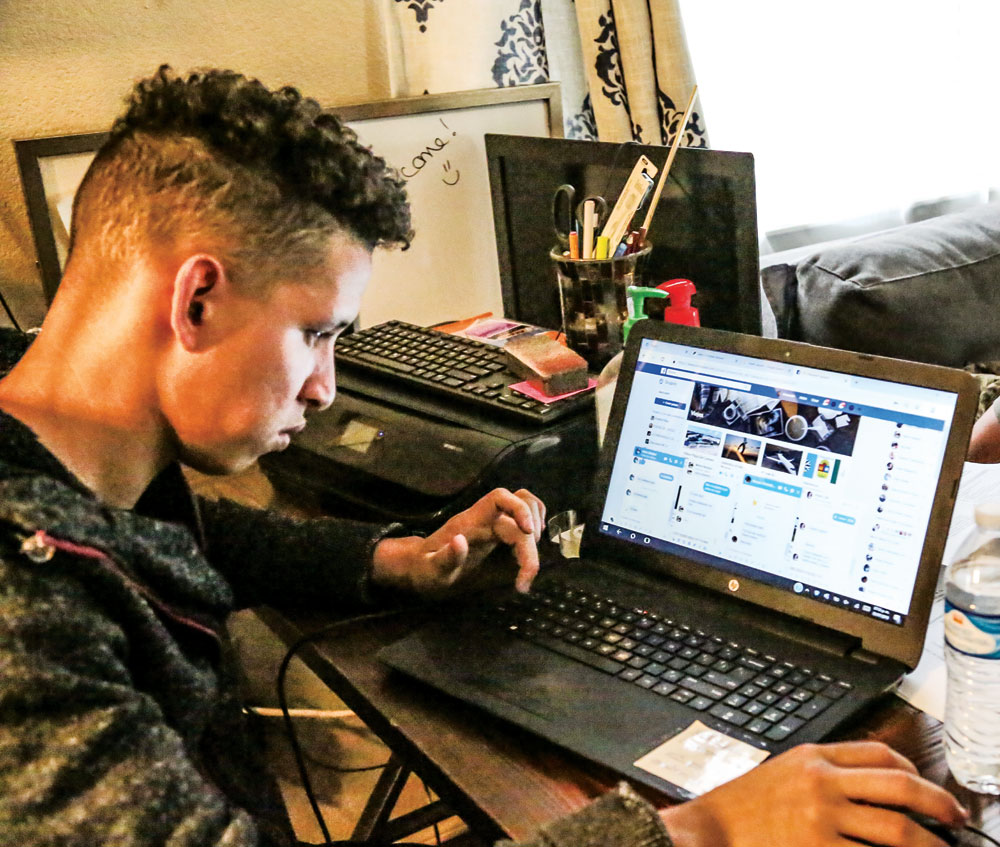
Alexander Piedrahita of Cuba uses the Casa computer to search for flights to see family in Florida.
“I don’t believe anyone wants to spend $750 a day to treat people like this….as taxpayers, as Americans, is this OK?” asks Schwem. “It didn’t start with this administration….Why can’t we smart, compassionate Americans figure this out?”



0 Comments